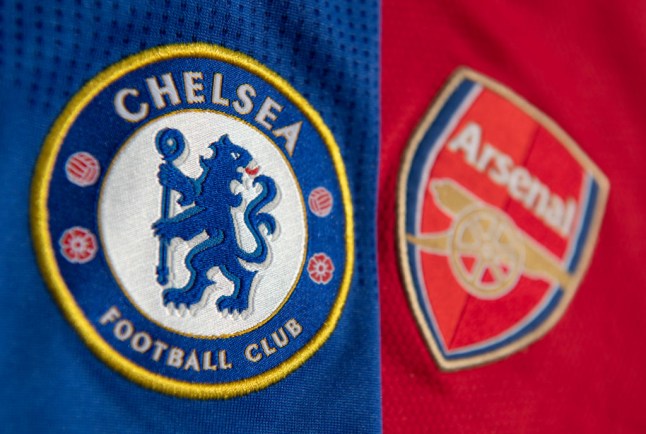Sport
I Always Regret the Decision: Arsenal Legend Emmanuel Petit Reflects on Leaving for Chelsea

Emmanuel Petit, the former French international and Arsenal icon, has candidly admitted his regrets about leaving Arsenal for Chelsea in 2001. Despite enjoying early success with the Gunners, his career after departing Highbury was marked by frustration, injuries, and unfulfilled potential. Petit’s reflections offer a compelling glimpse into the emotional and professional challenges players face when making high-stakes transfers.
Petit joined Arsenal in 1997, reuniting with his former Monaco coach, Arsène Wenger. His impact was immediate and profound, as he played a pivotal role in Arsenal’s historic double-winning season, clinching the Premier League and FA Cup in 1997-98. Alongside Patrick Vieira, Petit formed one of the most formidable midfield partnerships in English football, earning the admiration of fans and critics alike.
However, after three successful years at Arsenal, Petit made a high-profile move to Barcelona in 2000 alongside teammate Marc Overmars. The duo’s transfer, worth £7 million, was seen as a statement of intent by the Catalan giants. Unfortunately for Petit, his time at Camp Nou was far from ideal. Struggling with injuries and often played out of position, the Frenchman found it difficult to adapt to the demands of Spanish football.
In a 2020 interview, Petit compared his struggles at Barcelona to Philippe Coutinho’s disappointing tenure at the club following his record-breaking move from Liverpool. “When I was at Barcelona, I woke up every day thinking, ‘Why did I leave Arsenal?’ I’m sure Coutinho has been asking himself the same question,” Petit revealed. His words highlighted the emotional toll of leaving a club where he had felt valued and successful.
After a single season in Spain, Petit returned to England, joining Chelsea in 2001. Initially, his move to Stamford Bridge appeared promising, as he sought to rekindle his form in familiar surroundings. However, his Chelsea career was plagued by knee injuries, which severely hampered his ability to perform at the highest level.
Under then-manager Claudio Ranieri, Petit saw limited opportunities as his physical struggles worsened. By 2004, his time at Chelsea had come to an unceremonious end, leaving him disillusioned with the sport he once loved. Speaking to SFR Sport, Petit expressed his frustration with how his Chelsea stint concluded: “I didn’t like how things ended in the dressing room, with the medical staff, and with the club president. I was disgusted. My knee was a mess, but I hid the truth and kept playing because I still had the hunger.”
Petit’s regrets extended beyond his physical challenges. Reflecting on his decision to leave Arsenal, he admitted that he had underestimated the significance of the bond he had with the club and its supporters. “Leaving Arsenal was the biggest mistake of my career,” Petit confessed. “The grass isn’t always greener on the other side.”
His departure from Arsenal not only marked a turning point in his career but also served as a cautionary tale for players considering moves away from clubs where they have thrived. For Petit, the allure of new challenges and bigger opportunities came at the cost of his happiness and stability.
Petit’s honesty about his regrets has resonated with Arsenal fans, who continue to hold him in high regard for his contributions to the club’s success during a transformative era under Wenger. His story serves as a reminder of the importance of appreciating one’s place in a team and the risks involved in chasing greener pastures.
Despite his struggles post-Arsenal, Petit remains a celebrated figure in football. His achievements with the French national team, including winning the 1998 FIFA World Cup and the 2000 European Championship, cemented his legacy as one of the finest midfielders of his generation.
Petit’s reflections also underscore the emotional weight of decisions that players make in their careers. While financial incentives and ambition often drive transfers, the intangible aspects of football—such as camaraderie, fan support, and personal fulfillment—can prove equally, if not more, significant.
As Arsenal continues to build on its storied legacy, Petit’s journey serves as a poignant reminder to current players of the importance of loyalty and the potential pitfalls of leaving a club that feels like home.
Today, Petit remains an active voice in football, providing insightful commentary and serving as a link between past and present generations of players. His honesty about his regrets only adds to his authenticity as a football icon.
For Arsenal fans, Petit’s reflections are bittersweet—a reminder of the golden era he helped create, but also of what might have been had he stayed at the club longer. Nonetheless, his legacy as a Gunner remains intact, and his story continues to inspire debates about loyalty, ambition, and the ever-complex world of football transfers.

 Sport11 months ago
Sport11 months ago“I’m not trying to criticize Ancelotti, but I’m not happy with him for benching that player”: Bellingham Expresses Frustration Over Ancelotti’s Tactical Decision

 Sport12 months ago
Sport12 months agoBREAKING: Manchester City vs Liverpool Clash Cancelled! Title Race Takes a Twist

 Sport12 months ago
Sport12 months agoArsenal Poised for January Swoop on €70 Million Star Dusan Vlahovic

 Sport11 months ago
Sport11 months agoWHAT ON GOD’S GREEN EARTH DID WE JUST SEE?!

 Sport12 months ago
Sport12 months agoReal Madrid: Carlo Ancelotti’s Surprising Revelations About an Unexpected Quality of Vinicius

 Sport12 months ago
Sport12 months agoBREAKING: Arsenal’s Champions League Quarterfinal Opponent Revealed After Monaco’s Dramatic Win – Tough Challenges Await Arteta’s Men

 Sport11 months ago
Sport11 months agoChelsea Players Facing Suspension as Yellow Cards Mount

 Sport11 months ago
Sport11 months agoKey Arsenal Player Set for Return as Gunners Face Struggling Everton
















